Time of Mubarak
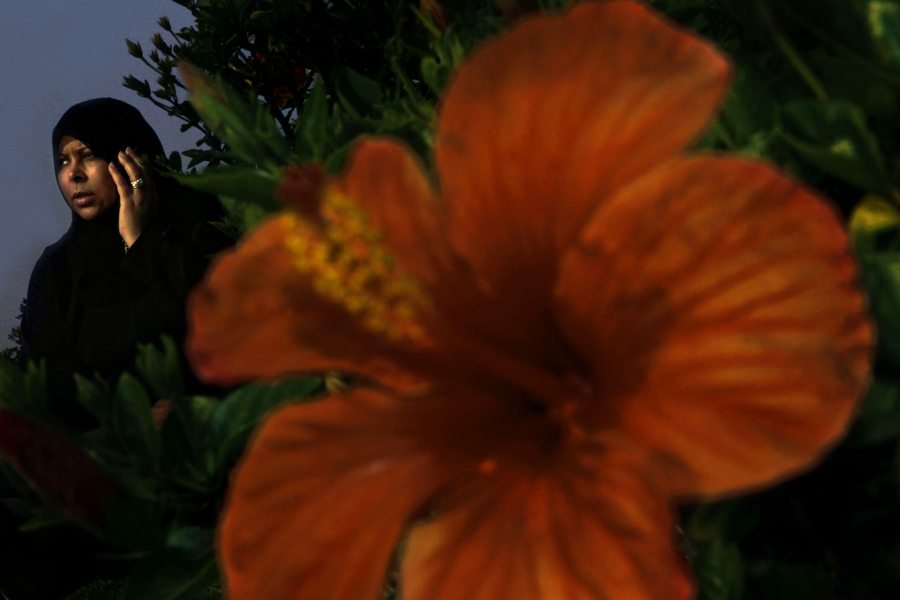
Egyptian photographer Laura El-Tantawy, who shares her time between Cairo and London, has a unique visual voice. Her photos capture people in a way that is at the same time intimate and distant; close and faraway.
Oftentimes, her photos explore social issues relating to identity and belonging, and document the everyday life that goes on around her. In the ongoing series In the Shadow of the Pyramids, Laura El-Tantawy portrays her country (one of her countries: she was born in the U.K. and grew up between Egypt, Saudi Arabia and the U.S.) at a time of big changes. The first part in the series, Chapter 1: Time of Mubarak, explores Egyptian identity – a theme she has worked with since 2005.
It began as a project document the everyday life of Egyptians, but soon evolved into capturing the conditions of a post-revolutionary society, where the struggle for “bread, justice and social dignity” (what people chanted for at Tahrir) continues.
Laura El-Tantaway says in an interview that no images of hers are as revealing as those shot during the Egyptian revolution. But, she says, “my best memories are not in any of my pictures – they are in my heart and mind. They are the smells, sounds and faces that I experienced”.
Today, Mashallah News features a selection of Chapter 1: Time of Mubarak.
Find Laura El-Tantawy’s entire work here.
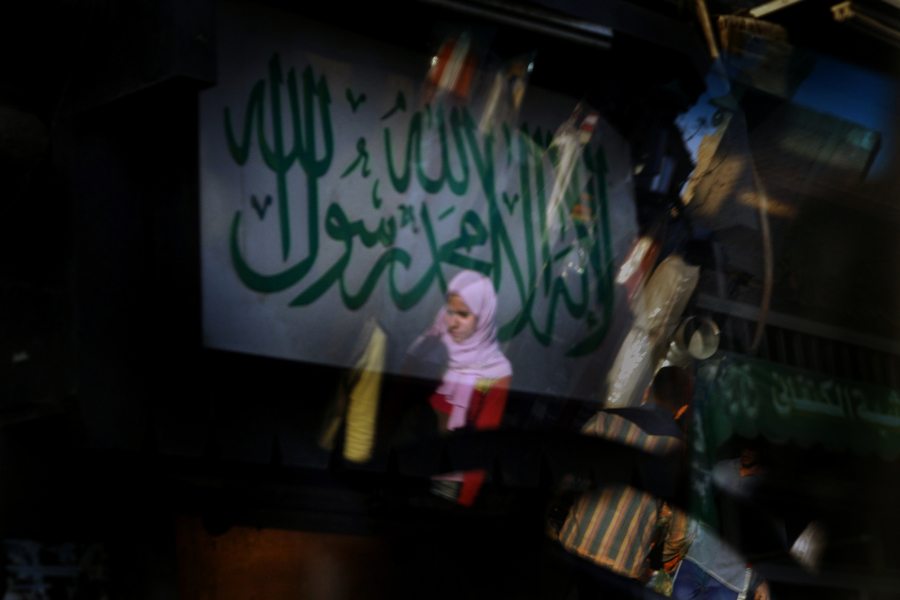
A woman walks on the street while a reflection casts the words used to confess one’s endorsement of Islam: “There is no God but Allah and Mohamed is his Prophet.”
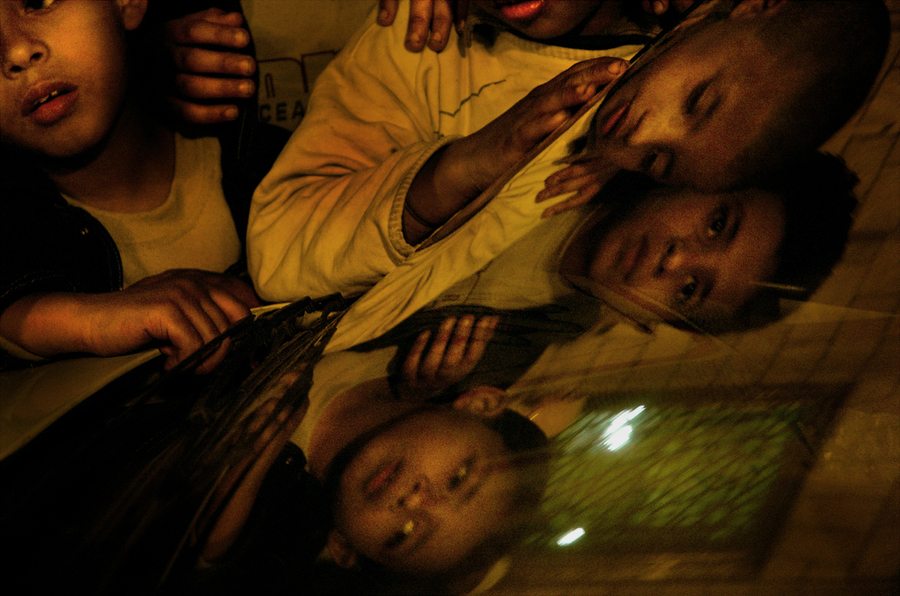
A group of youngsters on the street in Old Cairo.
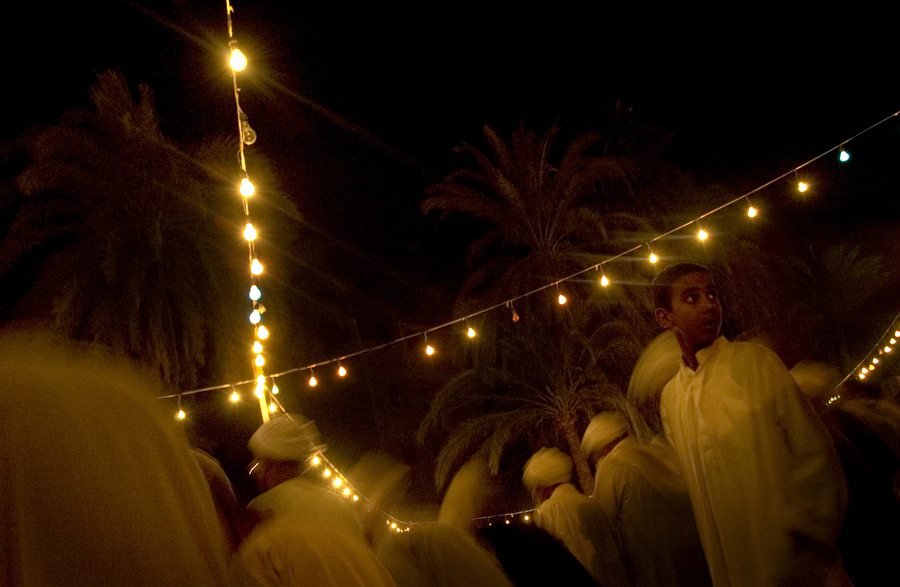
A boy stands among a group of men taking part in a religious festival in the southern town of Luxor, Egypt.
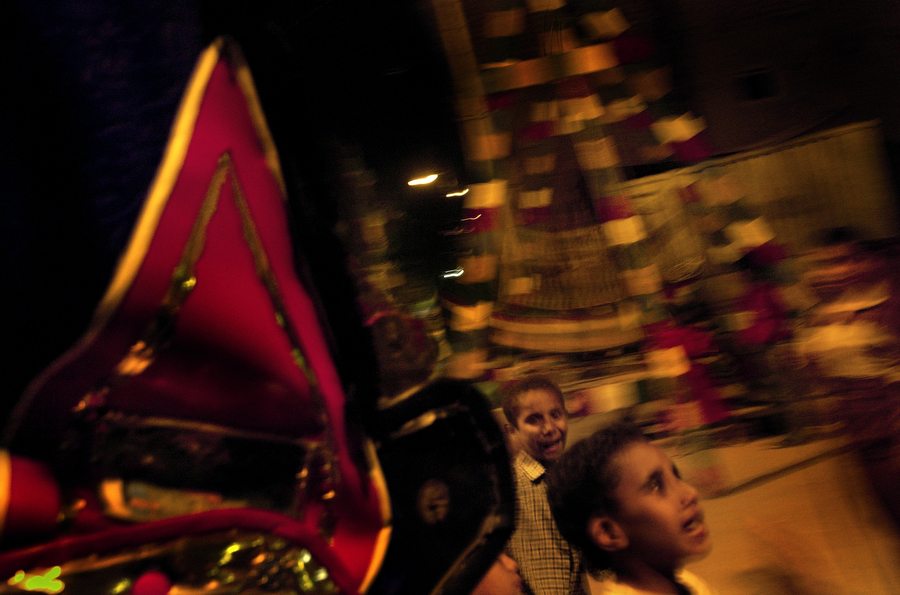
Children chase after a horse-led cart with tourist passengers asking for money.
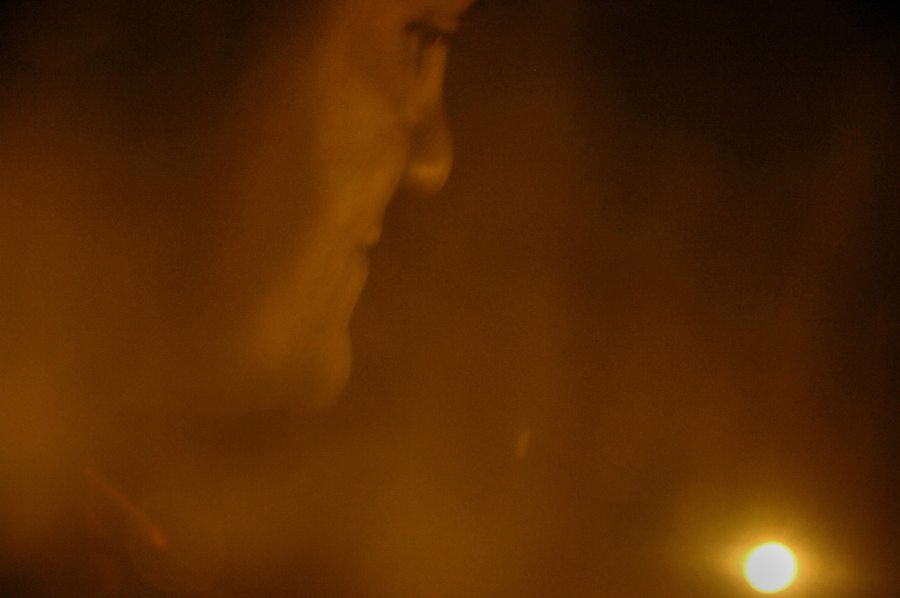
An Egyptian man on a late evening in Cairo.
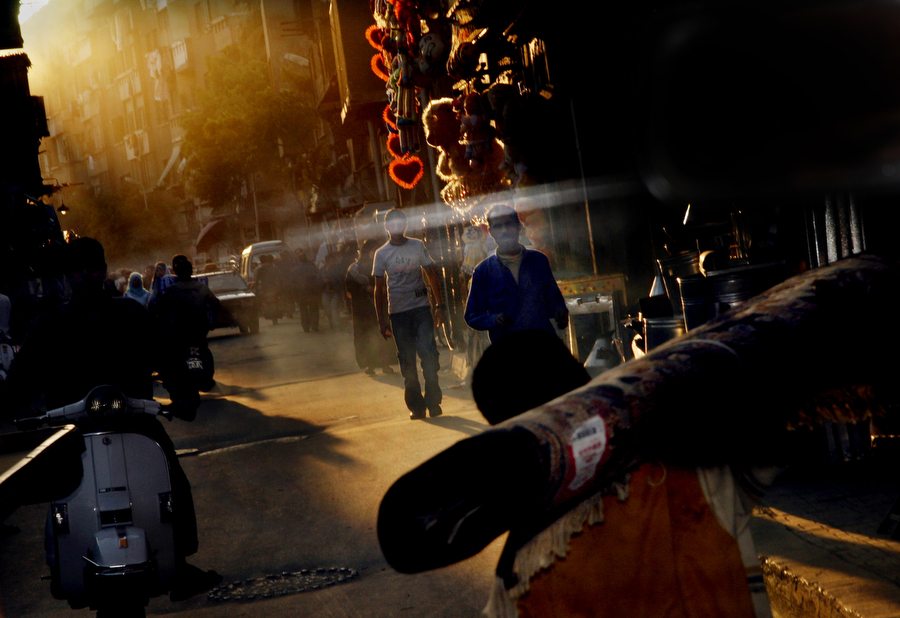
A boy carries a carpet on his shoulders in Old Cairo. With a 9.5 percent unemployment rate, much of the country’s graduates walk out of university knowing they will not work in their field of study. The majority of the country’s service sector employs university graduates – Cairo’s taxi drivers are university graduates with degrees in law, medicine or engineering. This has resulted in an influx of young people wanting to leave the country in pursuit of a better life elsewhere and brewed much of the resentment and urge for change that resulted in the Jan. 25 movement to oust Mubarak.
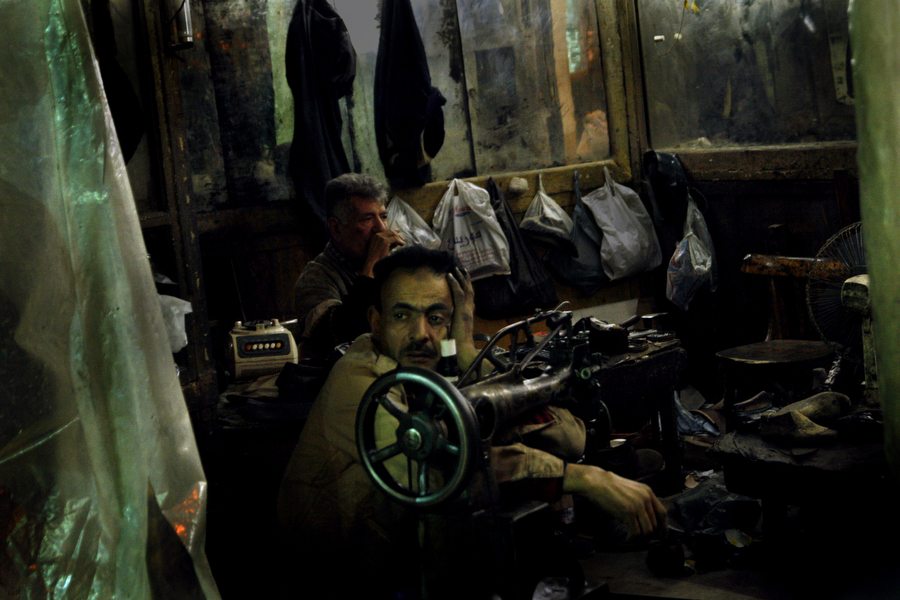
A weary-looking shoe repairman sits in his shop in the neighborhood of El Hussein in Cairo.
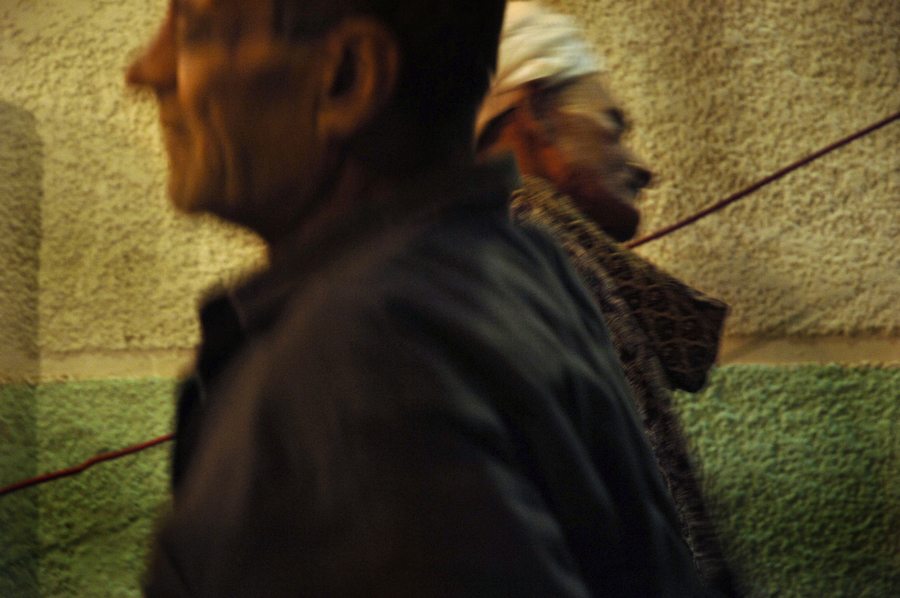
People walk on the street in Old Cairo. Egypt is a nation in transition – caught between a pull to the liberal and modern influences of the west and an opposing pull towards the country’s deeply rooted history, culture and religion, it is in turmoil over its identity as its future looms uncertain.
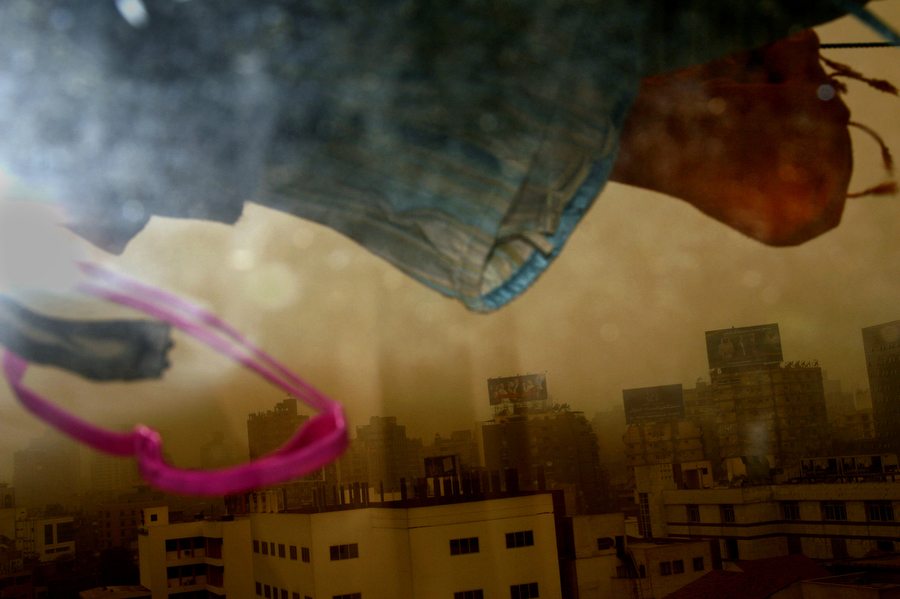
A sand storm hovers over Cairo casting a layer of dust across the capital and bringing the city to a standstill.
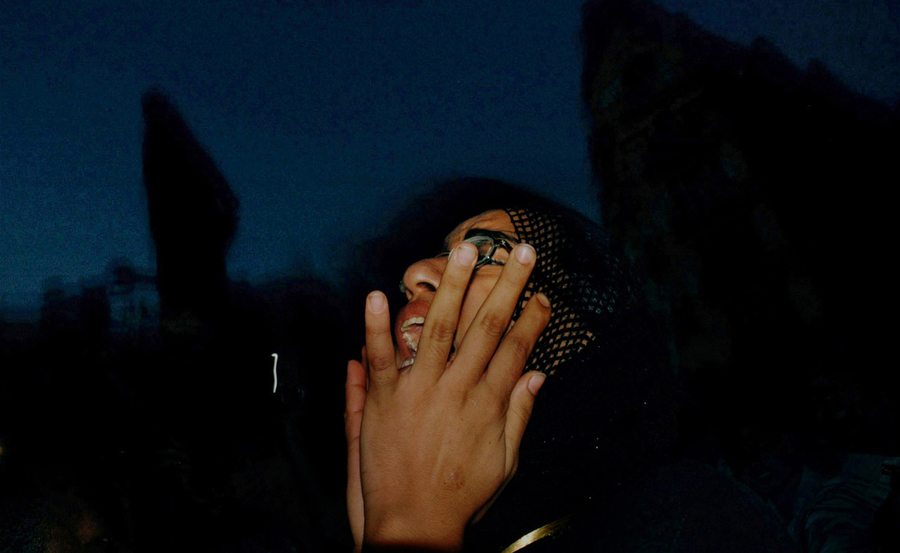
An Egyptian woman sandwiches her face in her hands while screaming the pain of what she said is Mubarak’s false regime during an anti-government demonstration in downtown Cairo led by Kefaya “Enough” Movement.








3 thoughts on “Time of Mubarak”